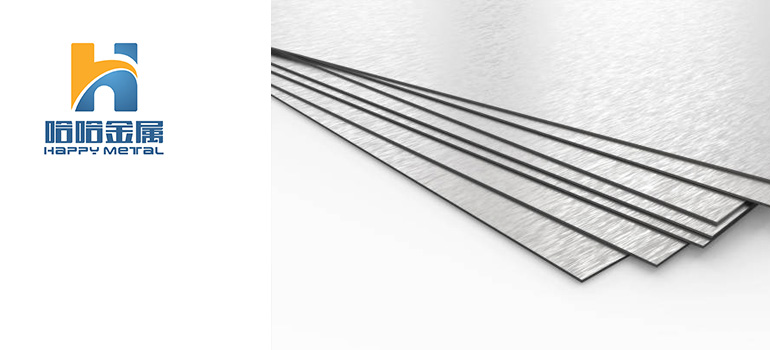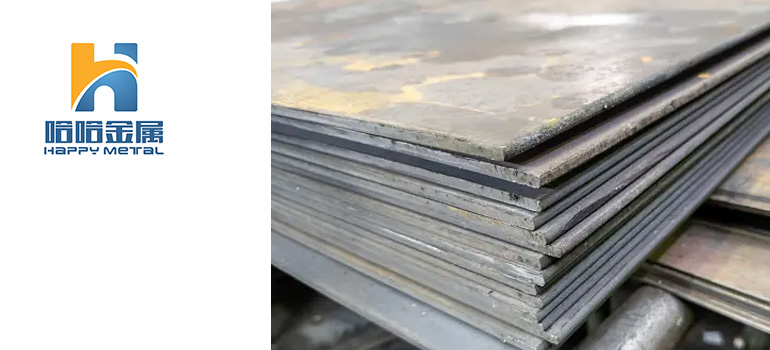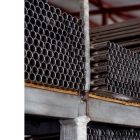Summary:
Coated Metal Alloy Plate Applications in Modern Industry
What are Coated Metal Alloy Plates?
Importance of Coatings in Modern Industry
Advantages of Using Coated Metal Alloy Plates
Applications of Coated Metal Alloy Plates
In modern industry, the application of coated metal alloy plate is becoming increasingly widespread. This technology not only changes traditional metal processing methods, but also brings new development opportunities to many industries. Coated metal alloy plate refers to the application of a special coating on the surface of a metal alloy to enhance its performance, extend its service life, or endow it with specific functions. The development of this field not only promotes technological progress in modern industry, but also plays a key role in fields such as automobiles, aerospace, and renewable energy.
In this introduction, we will delve into the basic concepts of coated metal alloy plates, their importance in modern industry, and the advantages of using coated metal alloy plates. We will also explore the common application areas of coated metal alloy plates and how these applications have changed the working methods of various industries. Through the content of this section, you will have a comprehensive understanding of coated metal alloy plate and be able to better understand the specific applications and technical details in subsequent chapters.
What are Coated Metal Alloy Plates?
Coated metal alloy plates refer to metal alloy plate that have been coated with a layer of a specific material or substance to enhance their performance, durability, or functionality. These coatings can be applied through various processes such as electroplating, thermal spraying, chemical vapor deposition (CVD), or other advanced coating techniques.
The choice of coating material and the method of application depend on the intended purpose of the coated metal alloy plate. For example, coatings may be applied to improve corrosion resistance, enhance wear and abrasion resistance, provide thermal insulation, or impart other specific properties such as electrical conductivity or biocompatibility.
Coated metal alloy plates find applications across a wide range of industries, including automotive, aerospace, renewable energy, electronics, and manufacturing. They play a crucial role in improving the performance and longevity of components and structures in these industries, leading to more efficient and sustainable processes.
Overall, coated metal alloy plate represent an innovative solution to enhance the properties of metal alloys, opening up new possibilities for advancements in various fields of technology and industry.
Coatings play a pivotal role in modern industry by enhancing the performance, longevity, and functionality of various materials and components. Here’s a closer look at the importance of coatings in modern industry:
Corrosion Protection: One of the primary reasons for applying coatings in modern industry is to protect metal surfaces from corrosion. Corrosion can lead to structural degradation, reduced lifespan, and increased maintenance costs. Coatings act as a barrier, preventing moisture and corrosive substances from reaching the underlying metal substrate, thereby extending its service life.
Wear and Abrasion Resistance: Coatings are applied to surfaces that are subjected to wear and abrasion in industrial environments. By adding a protective layer, coatings help to minimize friction, reduce wear, and prevent surface damage. This is particularly important in machinery, equipment, and tools used in manufacturing, construction, and mining industries.
Temperature Resistance: In industries where high temperatures are involved, such as automotive, aerospace, and energy sectors, coatings are applied to surfaces to provide thermal insulation and heat resistance. These coatings help to protect components from thermal degradation, maintain mechanical properties at elevated temperatures, and enhance overall performance and reliability.
Chemical Resistance: Coatings are used to protect surfaces from exposure to harsh chemicals, acids, and solvents in industrial processes. Chemical-resistant coatings prevent chemical reactions, corrosion, and degradation of materials, ensuring the integrity of equipment and structures in chemical processing plants, laboratories, and manufacturing facilities.
Aesthetic Appeal: Coatings are not only functional but also contribute to the aesthetic appeal of products and structures. In industries such as architecture, automotive design, and consumer goods manufacturing, coatings are applied to enhance the appearance, texture, and color of surfaces, making them more attractive to consumers and improving brand perception.
Environmental Protection: Some coatings are designed to provide environmental protection by reducing emissions, improving energy efficiency, or preventing pollution. For example, anti-fouling coatings used in marine applications help to minimize biofouling and reduce fuel consumption, contributing to environmental sustainability.
Overall, coatings play a critical role in modern industry by protecting assets, improving performance, reducing maintenance costs, and enhancing the overall quality of products and structures. Their importance extends across various sectors, driving innovation, efficiency, and sustainability in industrial processes.
Advantages of Using Coated Metal Alloy Plates

Using coated metal alloy plates offers several advantages across different industries. Here are some of the key benefits:
Enhanced Corrosion Resistance: Coatings provide a protective barrier against corrosion, extending the lifespan of metal alloy plates used in various applications. This is particularly important in industries exposed to harsh environments or corrosive substances.
Improved Wear and Abrasion Resistance: Coatings can increase the durability and resistance of metal alloy plates to wear and abrasion. This is beneficial in industries such as manufacturing, mining, and construction where equipment and machinery undergo significant wear and tear.
Customized Functionalities: Coatings can be engineered to provide specific functionalities tailored to the requirements of different applications. For example, coatings can offer properties such as electrical conductivity, thermal insulation, anti-microbial properties, or friction reduction, depending on the industry needs.
Reduced Maintenance Costs: By protecting metal alloy plates from degradation, coatings can minimize the need for maintenance and repair, thereby reducing downtime and associated costs. This is particularly advantageous in industries where continuous operation is critical.
Improved Aesthetic Appeal: Coatings can enhance the appearance of metal alloy plates, making them more visually appealing. This is important in industries such as automotive, architecture, and consumer goods, where aesthetics play a significant role in product design and marketing.
Environmental Protection: Some coatings are designed to be environmentally friendly, reducing the environmental impact of industrial processes. For example, coatings with low VOC (volatile organic compound) emissions contribute to air quality improvement and compliance with environmental regulations.
Enhanced Performance in Extreme Conditions: Coated metal alloy plates can maintain their performance even in extreme conditions such as high temperatures, humidity, or exposure to chemicals. This makes them suitable for use in demanding applications across various industries.
Cost-Effectiveness: Despite the initial investment in coating application, the long-term benefits of extended lifespan, reduced maintenance, and improved performance often outweigh the upfront costs, making coated metal alloy plates a cost-effective solution for many industrial applications.
Overall, the advantages of using coated metal alloy plates include improved durability, functionality, and cost-effectiveness, making them indispensable in modern industry across diverse sectors.
Applications of Coated Metal Alloy Plates
Coated metal alloy plates find diverse applications across numerous industries due to their enhanced properties and functionalities. Here are some common applications:
Automotive Industry Applications:
Corrosion Protection: Coated metal alloy plates are used in automotive bodies, chassis, and components to protect against corrosion from road salt, moisture, and environmental factors.
Wear Resistance: Coatings improve the wear resistance of engine parts, brake components, and suspension systems, prolonging their lifespan and reducing maintenance requirements.
Aesthetic Enhancement: Coatings provide decorative finishes on vehicle exteriors, trim pieces, and wheels, enhancing their appearance and brand appeal.
Aerospace Industry Implementations:
High-Temperature Resistance: Coated metal alloy plates are used in aircraft engines, turbine components, and airframes to withstand high temperatures and harsh operating conditions.
Corrosion Protection: Coatings protect aircraft structures and components from corrosion caused by exposure to moisture, salt, and atmospheric pollutants.
Weight Reduction: Advanced coatings reduce the weight of aerospace components, improving fuel efficiency and performance without compromising strength or durability.
Renewable Energy Sector Utilizations:
Solar Panel Coatings: Coated metal alloy plates are used in solar panels to enhance their efficiency, durability, and resistance to environmental degradation.
Wind Turbine Components: Coatings protect wind turbine blades, towers, and other components from corrosion, erosion, and fatigue, ensuring reliable performance in harsh environments.
Battery Technology: Coated metal alloy plates are employed in batteries for energy storage applications, providing corrosion resistance and improving electrode performance and lifespan.
Electronics and Semiconductor Manufacturing:
Conductive Coatings: Coated metal alloy plates with conductive coatings are used in electronic devices, circuit boards, and semiconductor components to ensure reliable electrical conductivity and signal transmission.
Dielectric Coatings: Insulating coatings are applied to metal alloy plates in electronic components to prevent electrical shorts, interference, and static discharge.
Anti-Reflective Coatings: Coatings with anti-reflective properties improve the optical performance of display screens, lenses, and optical sensors in electronic devices.
Industrial Equipment and Machinery:
Corrosion and Abrasion Resistance: Coated metal alloy plates are utilized in industrial machinery, processing equipment, and manufacturing tools to resist corrosion, wear, and abrasion, prolonging their lifespan and performance.
Chemical Resistance: Coatings protect metal surfaces from chemical exposure in industrial processes, preventing corrosion, contamination, and product quality issues.
Heat Management: Thermal barrier coatings on metal alloy plate improve heat dissipation, thermal insulation, and energy efficiency in industrial equipment, furnaces, and power generation systems.
These are just a few examples of the diverse applications of coated metal alloy plates across various industries, highlighting their importance in enhancing performance, durability, and reliability in demanding environments.




